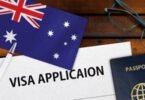The Fulbright Scholarship is one of the most prestigious and competitive scholarship programs in the world.
Established in 1946, it aims to foster mutual understanding between nations through educational and cultural exchange.
Each year, thousands of students from over 160 countries apply for this opportunity to study, teach, or conduct research in the United States.
In this blog post, we’ll explore the Fulbright Scholarship for international students in 2024, detailing the application process, benefits, and tips for success.
What is the Fulbright Scholarship?
The Fulbright Program offers scholarships for graduate students, young professionals, and artists to study abroad.
The program is sponsored by the U.S. government and administered by the Bureau of Educational and Cultural Affairs.
It provides funding for a variety of educational activities, including:
- Graduate degree programs
- Research projects
- Teaching assistantships
- Professional development programs
Eligibility Criteria
To apply for the Fulbright Scholarship, candidates must meet several eligibility requirements:
- Citizenship: Applicants must be citizens or nationals of a participating country.
- Academic Qualifications: A bachelor’s degree or equivalent is typically required.
- Language Proficiency: Proficiency in English is essential, usually demonstrated through standardized tests like TOEFL or IELTS.
- Health: Candidates must be in good health, as evidenced by a medical certificate.
- Other Requirements: Some countries may have additional requirements, such as specific fields of study or age limits.
Application Process
The application process for the Fulbright Scholarship can be rigorous and competitive. Here’s a step-by-step guide:
1. Research and Preparation
Begin by researching the specific requirements and deadlines for your country.
Each participating country has its own Fulbright Commission or U.S. Embassy that administers the program. Use this link to find country-specific information.
2. Application Form
Fill out the online application form, which includes personal information, academic background, and details of your proposed study or research project.
3. Statement of Purpose
Write a compelling statement of purpose outlining your academic and career goals, why you want to study in the U.S., and how the Fulbright Scholarship will help you achieve these objectives.
4. Research Proposal
If applying for a research grant, submit a detailed research proposal, including objectives, methodology, and potential impact.
5. Letters of Recommendation
Obtain strong letters of recommendation from professors or professionals who can attest to your academic and personal qualities.
6. Interviews
Shortlisted candidates will be invited for an interview. This is an opportunity to discuss your application in detail and demonstrate your enthusiasm for the program.
Benefits of the Fulbright Scholarship
The Fulbright Scholarship offers numerous benefits, including:
- Tuition and Fees: Covers tuition costs for the duration of the program.
- Stipend: Provides a monthly stipend for living expenses.
- Travel Costs: Includes round-trip airfare to and from the U.S.
- Health Insurance: Covers basic health insurance during the program.
- Cultural Exchange: Opportunities to engage in cultural activities and networking events.
Tips for a Successful Application
- Start Early: Begin your application well in advance to ensure you have plenty of time to gather all necessary materials.
- Seek Guidance: Consult with Fulbright alumni, professors, or advisors for insights and advice.
- Tailor Your Application: Customize your application to align with Fulbright’s mission of fostering mutual understanding.
- Highlight Leadership Skills: Demonstrate your leadership potential and how you plan to contribute to your home country after the program.
- Proofread: Carefully proofread your application to eliminate any errors or inconsistencies.
Alumni Success Stories
The Fulbright Program has a rich history of producing successful alumni, including Nobel Laureates, Pulitzer Prize winners, and leaders in various fields. Some notable alumni include:
- Madeleine Albright: Former U.S. Secretary of State
- John Hope Franklin: Renowned historian and author
- Chimamanda Ngozi Adichie: Acclaimed writer and author
Conclusion
Applying for the Fulbright Scholarship is a challenging yet rewarding process.
It offers a unique opportunity to enhance your education, gain international experience, and build a global network.
By following the steps outlined in this guide and preparing a strong application, you can increase your chances of becoming a Fulbright Scholar in 2024.
For more information, visit the official Fulbright Program website: Fulbright Program.
Feel free to share your experiences or ask questions in the comments below. Good luck with your application!








